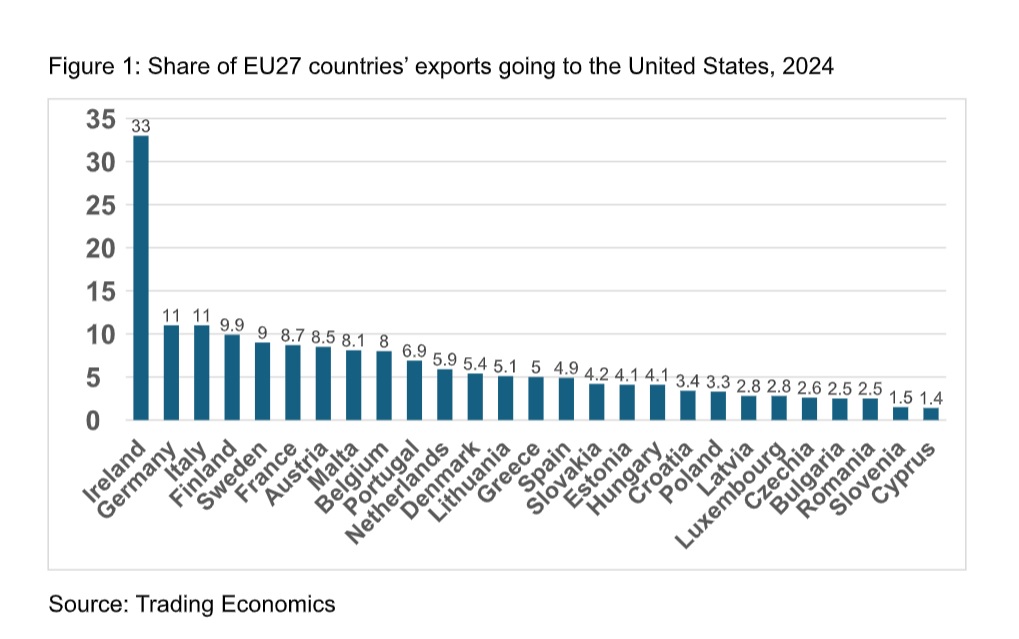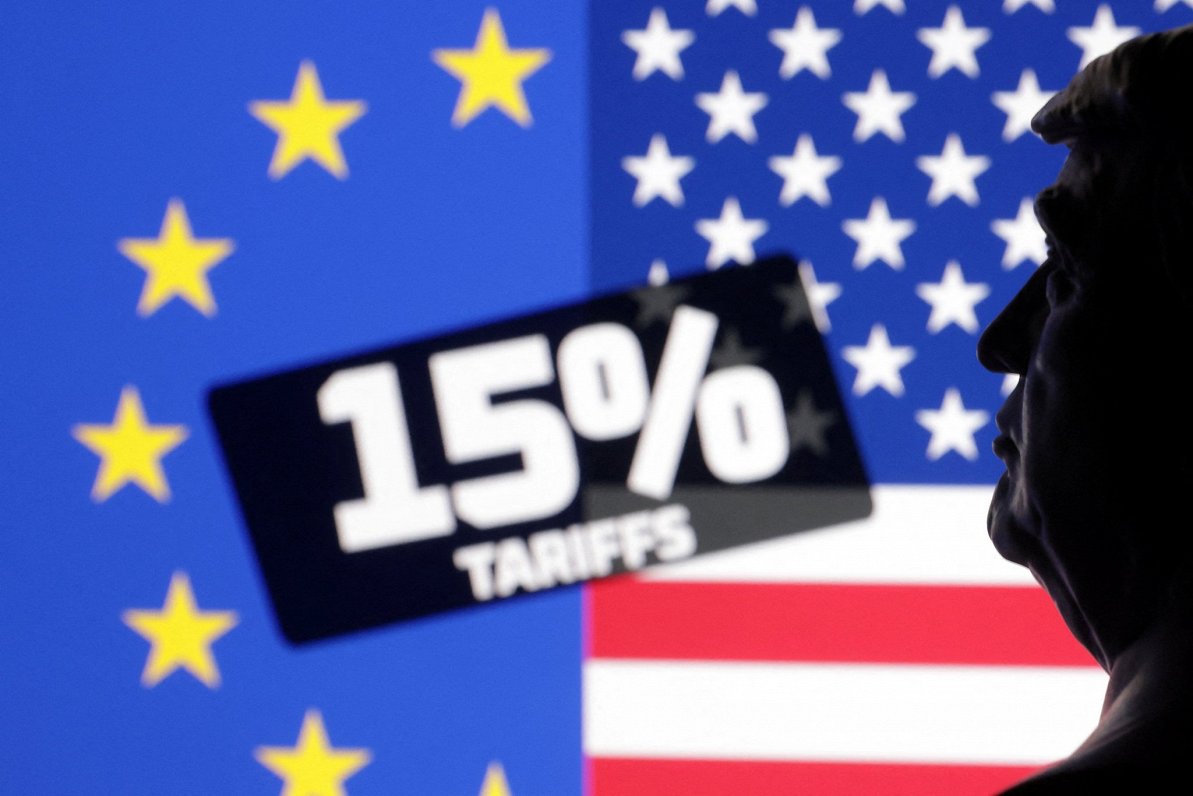What size tariffs, on which countries and on which products have been put in motion by the US’ Trump adinistration? I must admit that I am lost regarding the details, but it seems to be a 15% tariff on most EU goods, while the EU did not retaliate. Or perhaps I am wrong. It has not been easy to follow.
But it is certainly relevant and important to analyze what might be the effect of this on the EU economies, on the US economy, the world economy or, as in my case here, the Latvian economy.
A tariff is a discriminatory tax on foreign products. The 15% tariff is slapped on Latvian (and other EU) goods while similar US goods are exempt, hence the discrimination and the difference between tariffs and VAT – VAT is also a tax on goods but it applies equally to domestic and foreign goods and thus does not discriminate in terms of origin.
In short, the idea of a tariff is to make foreign goods artificially more expensive thereby reducing demand for them while theoretically increasing demand for domestic goods instead. A tariff on e.g. Volkswagen cars in the US makes VW cars there more expensive and some will likely buy American-made cars instead, thereby increasing American production, GDP and employment while reducing the EU equivalents.
Within the EU, tariffs are zero in order to avoid discrimination and allow free competition: whoever can make a certain good better or cheaper is not discriminated against. And, being a member of the World Trade Organization (WTO) since February 1999, Latvia in general has very low tariffs against third countries, just over 1%, thus much, much less than the US’ 15%. Latvia very much relies on free international trade!
A possibility for the EU was to introduce similar measures as the US, i.e. tariffs on US goods coming into the European Union. The EU chose not to do this and I think that was a smart idea: supporting one’s own goods with tariffs leads to bigger consumption of one’s own more expensive goods, which raises inflation. USA will see higher inflation due to its tariffs, very much contrary to what the Trump administration has promised.
The EU should thus avoid an inflationary impact by not introducing tariffs but what about the loss of production, GDP and employment due to the US tariffs? My argument will be that the impact on the EU will be limited and the direct impact on Latvia will be almost negligible.
Below is a graph which displays how big a share of a country’s exports go to the US. For Ireland, the US market is very important. USA is the single biggest export destination for Ireland and Germany (but for no other EU country), but we can see that America does not matter much for Latvia. Only 2.8% of Latvian exports in 2024 went to the US, making that country only the 11th-most-important export destinations for Latvian exports. So, not that important.
With exports being some 60% of Latvian GDP, this means that about 1.7% of Latvian production is affected by the 15% tariff, a very small number which will do very little damage in and by itself to the Latvian economy. Some individual firms which are very exposed to the US market may feel a squeeze but as the numbers show, they are few and far between – and the overall economy is set to suffer very little.

So, we should just shrug off this American economic policy? Not exactly. Secondary effects may be an issue. Take Germany as an example. As the graph above shows, the US market is quite important for that country. US tariffs will hurt Germany’s economy, leading to lower economic activity, which leads to lower imports – but those imports to Germany are partly Latvian exports (Germany is Latvia’s 3rd most important export partner). So, Latvia may be affected more by slowdowns in important trading partners in the EU than by the direct effect of the US tariffs.
But the overall impact will still be minimal – this will not cause a recession in Latvia, if anyone had thought it might. The most regrettable issues are that this flurry of tariffs or no tariffs creates a lot of uncertainty. Who in their right mind will make a decision to produce in the long-term for the US market if they don’t know the trade regime in the future? We will thus see less investment and less employment than we would without these tariffs. The world will be a bit of a poorer place.
And equally regrettable, this is so unnecessary. The EU has done nothing to deserve this treatment.
Morten Hansen is former Head of the Economics Department at Stockholm School of Economics in Riga and former Vice-Chairman of the Fiscal Discipline Council of Latvia.
Select text and press Ctrl+Enter to send a suggested correction to the editor
Select text and press Report a mistake to send a suggested correction to the editor
Tell us about a mistake
